-
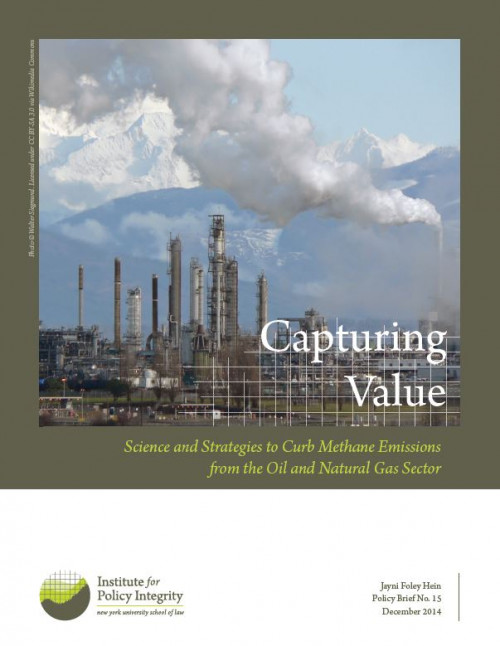
Capturing Value
Science and Strategies to Curb Methane Emissions from the Oil and Natural Gas Sector
Methane, the primary component of natural gas, is a potent climate pollutant up to 86 times more powerful than carbon dioxide on a 20-year timeframe. Currently the United States loses at least 1 to 3 percent of its total natural gas production each year when methane is leaked or vented to the atmosphere. Federal regulations could reduce methane emissions by up to 50 percent at little or no net cost, using available technologies.
-
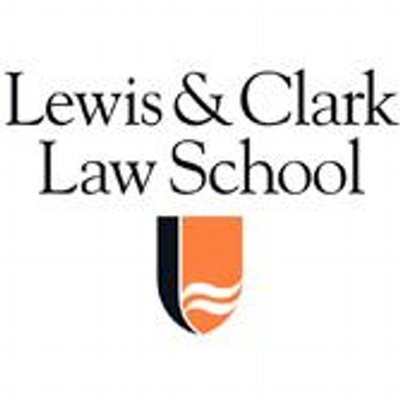
Interest Groups and Environmental Policy
Inconsistent Positions and Missed Opportunities
This Essay examines and explains the positions of the principal interest groups over the past four decades with respect to the two central questions of environmental policy: the appropriate policy goal and the instrument that should be used to carry out the policy. While environmental groups and industry have largely switched positions on the two central questions of environmental policy, the points at which their positions overlapped were fleeting, and opportunities to make substantial progress in rationalizing the system of environmental regulation have largely been unrealized.
-
EPA’s Clean Power Plan - Public Comments
In Policy Integrity’s recently submitted public comments on the EPA’s Clean Power Plan, we make the case that the EPA’s flexible, cost-minimizing approach to setting performance standards for existing power plants is consistent with over 30 years of EPA Clean Air Act practice, under both Republican and Democratic administrations. While opponents of the Clean Power Plan have argued that the EPA is taking unprecedented and unwarranted steps to regulate carbon dioxide under the Clean Air Act, we show that the plan is deeply rooted in precedent.
-
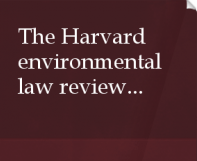
Toward a More Rational Environmental Policy
This essay argues that U.S. environmental policy should operate in accordance with five major components of rationality: cost-benefit analysis; cost minimization; flexible market-based instruments; constraints on grandfathering; and the sensible allocation of decision-making authority between the federal government and the states. This past Term, the Supreme Court decided two significant cases, which together should be seen as producing a move toward rationality in environmental policy.
-
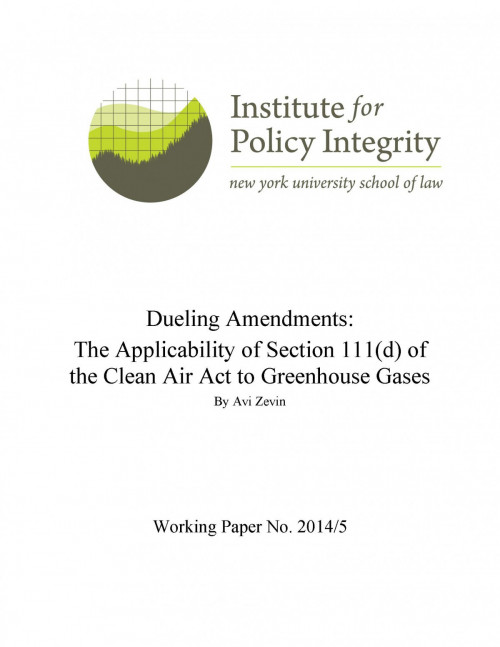
Dueling Amendments
The Applicability of Section 111(d) of the Clean Air Act to Greenhouse Gases
The United States Supreme Court determined that greenhouse gases (GHGs) were an “air pollutant” under the Clean Air Act in its ruling on Massachusetts v. EPA. The Environmental Protection Agency (EPA) has since taken steps to regulate GHGs under a rarely utilized provision of the Clean Air Act, section 111(d). Despite the text printed in the U.S. Code, the true text of section 111(d) is in doubt. This is because of a small but potentially significant legislating error that occurred during the creation of the 1990 Clean Air Act Amendments, when the Senate and House of Representatives made different revisions to section 111(d), both of which were passed by both houses of Congress and signed by the President. This paper analyzes whether the conflicting amendments to section 111(d) will prove to be a problem or an opportunity for EPA in its efforts to regulate GHGs.
This is a student working paper, and it does not necessarily represent the views of the Institute for Policy Integrity.
-
Public Comments on Net Metering in Wisconsin
Wisconsin is one of more than 40 states with a “net metering” law that allows solar-powered households to sell some of the electricity they generate back into the grid for a fixed price. The Wisconsin Electric Power Company and Wisconsin Gas LLC recently proposed changes to their net metering rates, arguing in part that the rates force them to fund additional grid maintenance and modernization without appropriate compensation. However, the current rates also do not account for the climate and public health benefits from distributed solar generation.
-
Oil Train Safety - Public Comments
Driven by growth in the production of oil in the U.S. and Canada, there has been a significant increase in rail transportation of crude oil over the past five years, with a corresponding increase in the number of accidents. Many oil trains pass through sensitive environmental habitats and densely populated areas, and even share track with commuter trains in some regions.
-
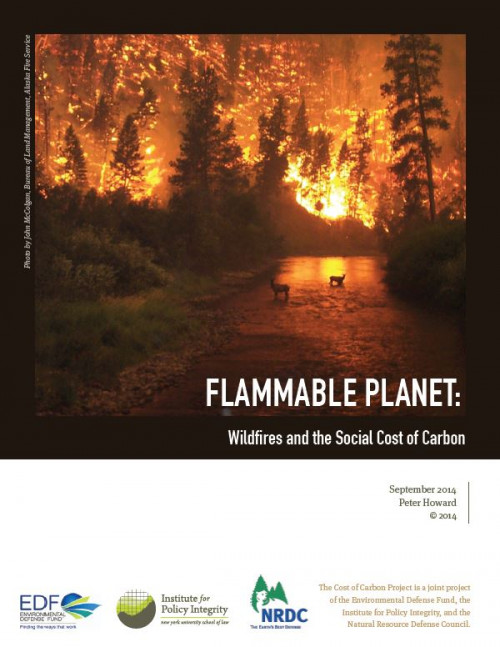
Flammable Planet: Wildfires and the Social Cost of Carbon
Climate change is expected to make wildfires more frequent and intense, with new areas facing wildfire risk. This could take a serious toll on the U.S. economy by expanding the area that wildfires burn 50 percent by 2050—and raising projected damages by tens of billions of dollars a year. Flammable Planet provides the first-ever estimate of the extent to which climate change will magnify the future economic costs of wildfires.
-
Offshore Leasing and Option Value - Comments on BOEM’s 2017-2022 Leasing Program
Policy Integrity recently submitted comments to the Bureau of Ocean Energy Management (BOEM) on its five-year offshore leasing program from 2017-2022. BOEM is charged with stewarding vital and valuable resources for the benefit of the American people. On the one hand, the agency must direct the orderly development of offshore oil and gas deposits; at the same time, the agency must safeguard the ecosystems, cultural assets, and human lives affected by resource extraction decisions, and must preserve competing uses of offshore areas. BOEM thus has a responsibility to ensure the reasonable development of offshore resources so that costs to society are appropriately balanced against the benefits generated. Moreover, BOEM must collect a fair return on any of the American people’s oil and gas reserves that are leased for private development. Finally, the agency must attend to the different effects of offshore development on different regions, ecosystems, and communities.
-
Richard Revesz Testifies at House Energy and Commerce Committee Hearing
Richard Revesz, director of the Institute for Policy Integrity, testified at a U.S. House of Representatives Committee on Energy and Commerce hearing on July 11 to discuss the proper role of the federal government in environmental regulation. At the hearing, entitled, “Constitutional Considerations: States vs. Federal Environmental Policy Implementation,” Revesz discussed a series of instances in which federal action is desirable.
Viewing recent projects in Climate and Energy Policy
